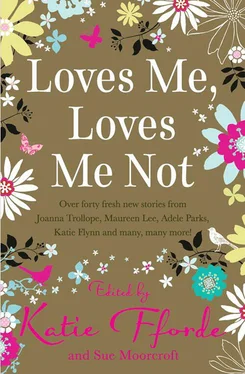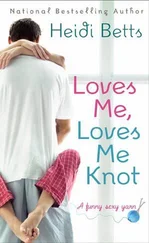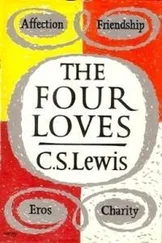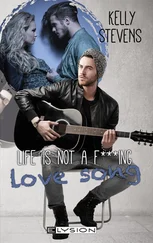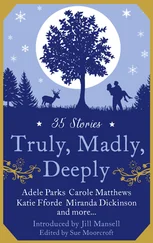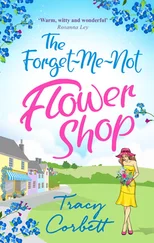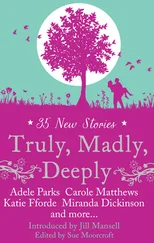Edited by
Katie Fforde and Sue Moorcroft
Loves Me,
Loves Me Not
Joanna Trollope
Nicola Cornick
Judy Astley
Benita Brown
Jane Gordon-Cumming
Sue Moorcroft
Victoria Connelly
Amanda Grange
Jean Buchanan
Anna Jacobs
Nell Dixon
Liz Fielding
Anita Burgh
Joanna Maitland
Adele Parks
Rita Bradshaw
Elizabeth Bailey
Annie Murray
Jane Wenham-Jones
Rosie Harris
Trisha Ashley
Carole Matthews
Louise Allen
Sue Gedge
Rosemary Laurey
Charlotte Betts
Elizabeth Chadwick
Katie Fforde
Sophie King
Jan Jones
Janet Gover
Maureen Lee
Linda Mitchelmore
Christina Jones
Geoffrey Harfield
Margaret Kaine
Theresa Howes
Gill Sanderson
Debby Holt
Sophie Weston
Katie Flynn
Margaret James
Eileen Ramsay
Diane Pearson

www.mirabooks.co.uk
To the wonderful, talented members of the
Romantic Novelists’ Association
The Romantic Novelists’ Association would like to thank all of its members who contributed to this fabulous anthology. And also, Caroline Sheldon, for her help and support.
I have been a member of the Romantic Novelists’ Association since before the dawn of time or before I can remember, anyway. It’s hard to say if I would have become a published novelist without them but I suspect not. Like reading romantic fiction, which has always been what got me through the tough times and still does, the RNA is a constant support. Without them I might well have given up, without them I would never have known the many writers who are now my friends. The joy of my first meeting when I realised I was not the only mad woman in the attic, typing away when I should have been ironing, cooking or generally being a wife and mother, was immense.
Thus, it is a complete pleasure to be asked to be involved with this fabulous anthology. It really is a box-of-chocolates of a book. There is everything in here, whatever your taste. There’s sophisticated chic lit, tender romance—funny stories, scary stories and even fairy stories—and every other sort of story you can think of, including a vampire story.
One of the things I particularly like is it represents the vast range of writers and writing that the RNA embraces and shows the sparkling talent that our organisation represents.
Romantic fiction is a very popular, and demonstrably broad, genre and in here you don’t just get a lot of wonderfully good reads, you get real value for money.
Enjoy—you can dive into this without putting on an ounce!
Rembrandt at Twenty-Two
Joanna Trollope has been writing for over thirty years. Her enormously successful contemporary works of fiction, several of which have been televised, include The Choir, A Village Affair, A Passionate Man and The Rector’s Wife, which was her first number one bestseller and made her into a household name. Since then she has written The Men and the Girls, A Spanish Lover, The Best of Friends, Next of Kin, Other People’s Children, Marrying the Mistress, Girl from the South, Brother and Sister and Second Honeymoon. Her latest novel is Friday Nights. Joanna also wrote Britannia’s Daughters —a non-fiction study of women in the British Empire, as well as a number of historical novels now published under Caroline Harvey. Joanna was awarded the OBE in 1996 for services to literature.
Find out more at www.joannatrollope.com
I promise you, I saw him from the stage. I couldn’t miss him, not the way he was looking at me. I was up there, front row, final chorus, stockings and suspenders, and he was out there, in the stalls, centre, only two rows back. Our eyes met. Well, not just met. Our gazes kind of fused. I’d never known anything like it, and there isn’t a name for it, that kind of attraction, and perhaps there shouldn’t be, because it’s different every time, different for everyone.
Well, of course, he was waiting at the stage door.
He said, ‘Hello, gorgeous.’
I said, ‘You foreign?’
He smiled. He had a fantastic smile. He said, ‘I’m Dutch.’
I said, rudely, because I was so wildly excited, ‘You can’t be. Dutch boys aren’t tall, dark and handsome. Dutch boys are blond and look like potatoes.’
He laughed. Then he kissed me. Can you imagine being kissed by a total stranger and wanting him never to stop? And then we went for drinks, somewhere hot and dark and noisy, and then he said he’d got to go.
‘Go?’
‘To catch a plane.’
‘Where?’
‘Home. Back to Amsterdam.’
‘You can’t, you can’t—’
‘Come, too.’
‘I can’t. I’ve got a show to do—’
‘Come tomorrow.’
‘I can’t—’
‘Come.’
I looked at him. He looked back, like he was looking right into me, like he knew me. Then he picked up a paper serviette and wrote something on it.
‘Meet me there. Sunday. Three p.m.’
I peered at his scribble. ‘Can’t read it—’
‘Meet me,’ he said, ‘in front of my favourite painting. In the Rijksmuseum. Three o’clock Sunday.’
‘I’ve never been to Amsterdam—’
‘It’s easy,’ he said. ‘Everyone speaks English.’ He leaned forward and kissed me. ‘See you there, gorgeous.’
I said, ‘Can I have your number?’
He took my hands. He said, ‘No need. This is special. This is something else. This is a beginning.’
Of course, I went. I danced myself to a standstill in the Saturday matinee and the evening show, and when I came off stage, Sam, the stage manager, who could do praise as well as he could fly, said, ‘Nice work,’ looking straight at me. And then I went out of the theatre without a word to anyone and got a night bus to Stansted Airport and the first flight out to Amsterdam. I was so high on the thought of seeing him that you could have powered a city off me. Two, maybe.
That energy carried me through the night, through the next morning. It was like surfing a big wave that never quite got to shore. I bought coffee, I bought apple cake, I went brazenly into a big hotel and used the ladies’ room to wash and do my make-up and my hair. I talked to people and he was right, they spoke English, and they smiled, and they talked back to me. And at a quarter to three I was where he told me to be, in this huge old museum, crammed with visitors, standing in front of a painting of a boy with a big mop of frizzy hair and a face like a potato. Zelfportret ca. 1628, it said underneath. Rembrandt Harmensz van Rijn at twenty-two. I stared at him. He looked back out of his painting, over my shoulder as if he was waiting for someone.
He had a long wait. No one came. I waited two hours, and my Dutchman never came. I went out and drank gin, which there seems to be a lot of in Amsterdam, and got myself a weird hotel room near the station, and drank and cried and drank and cried until I fell asleep.
I went back the next day, in case he’d said Monday, not Sunday. And then I went back on Tuesday and Wednesday and Thursday. And, on Friday, something clicked in my brain, and I actually registered the messages on my phone, and a different sick fear slid down into my stomach. The fear of being let down was added to by the fear of losing my job.
Читать дальше
